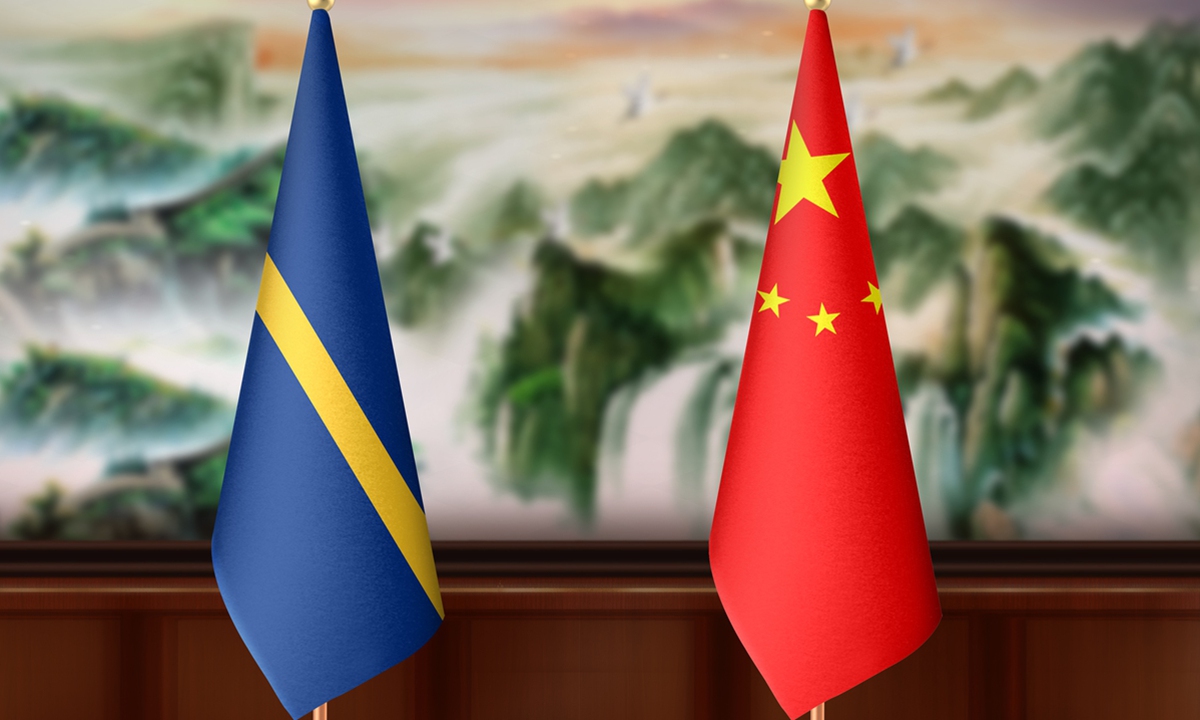(来源:Global Times,2024-01-17)

China, Nauru Photo: VCG
After the Democratic Progressive Party (DPP) authorities of the Taiwan region were hard slapped in their faces by the decision of the Pacific island nation of Nauru to sever diplomatic ties with the Taiwan authorities and seek to reestablish diplomatic relations with China, the US has expressed disappointment with Nauru's move. Taiwan's so-called diplomatic relations are nothing but soap bubbles that could easily burst with a poke, and now the US has only been left with 12 more chances to express its disappointment.
As more countries recognize the one-China principle, Nauru's decision is seen as a wise choice that aligns with the general trend. Whenever a country severs ties with the Taiwan region, the US becomes anxious. Washington hopes to prevent a domino effect of more diplomatic allies of Taiwan turning to Beijing. In 2019, US lawmakers even passed the Taiwan Allies International Protection and Enhancement Initiative (TAIPEI) Act, which would punish countries that choose to drop diplomatic recognition of Taiwan and establish ties with the Chinese mainland. However, this is only a futile attempt of the US to vent its anger.
Laura Rosenberger, chair of the American Institute in Taiwan (AIT), said Nauru's statement of severing ties with Taiwan are distorted narratives about United Nations Resolution 2758 being used as a tool to pressure Taiwan, limit its voice on the international stage and limit its diplomatic relationships. It's well-known that the UN Resolution 2758, passed in 1971, recognized the representatives of the government of People's Republic of China as the only legitimate representatives of China to the UN in 1971.
The question is, does the US have the right to dictate Nauru's decision? What the US has said is sheer interference in the internal affairs of another country. First, Taiwan is not a state. Second, Nauru is a sovereign state entitled to decide with whom it wishes to establish diplomatic ties. The US, which has long regarded the South Pacific region as its own backyard, has become accustomed to bossing around the countries in the region. However, it is in no position to dictate such a sovereign decision in this way.
The US knows that if some Pacific countries, which are small but geopolitically important, establish diplomatic relations with China, the geopolitical influence of the US in this region will further decline. From the US point of view, any progress or breakthrough made by Beijing is a loss for Washington,Xin Qiang, deputy director of the Center for American Studies at Fudan University,told the Global Times.
Both the US and the DPP authorities are unable to resist the general trend of the one-China principle. The world can see clearly the contrast in strength between the Chinese mainland and the Taiwan region, including the enormous gap in international influence. Some countries have chosen to establish diplomatic relations with the Chinese mainland precisely because they recognize that this will bring them positive impacts in both economic and social development. The Taiwan authorities and the US actually know very well why 10 countries have severed ties with Taiwan since 2016, and they also know that the same thing will likely occur in the future.
Nauru's severance of ties with Taiwan region is significant, which became the biggest congratulatory gift for Lai Ching-te who just won the regional leadership election. This not only has dealt a blow to the DPP authorities, turning their joyous occasion into a dark moment, but also reflects the current power dynamics across the Taiwan Straits.

